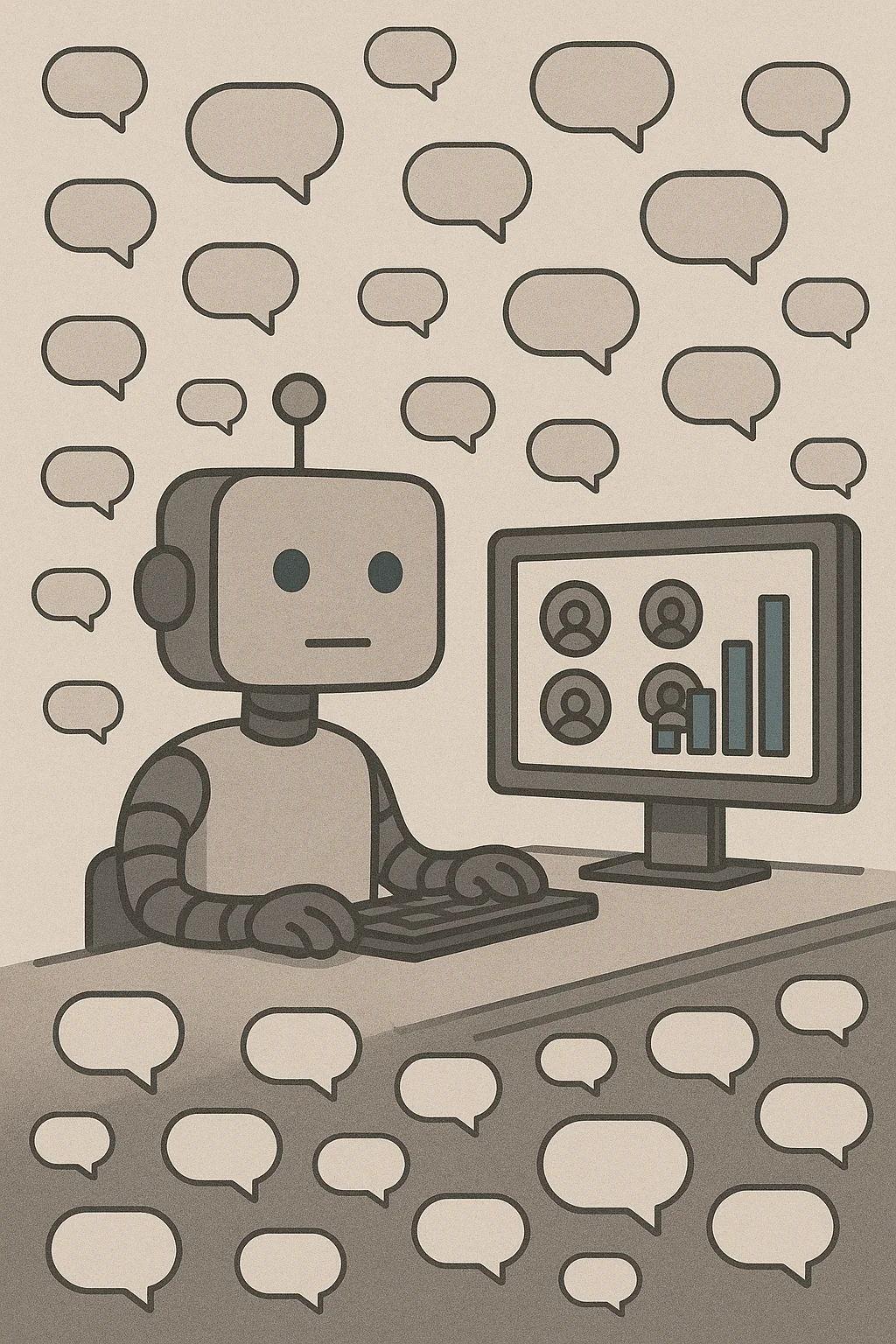AI Interviews: Qualitative Research at Quantitative Scale
In our previous post, we explored how traditional surveys fail to capture the depth businesses need for meaningful insights. The choice has always been binary: deep qualitative research with 20-30 participants, or shallow quantitative surveys with thousands.

AI-powered qualitative research studies are changing this equation, enabling businesses to conduct in-depth, conversational research with hundreds or thousands of participants simultaneously through comprehensive market research.
How AI-Powered Qualitative Research Studies Work
Unlike static surveys, AI-powered research studies use conversational AI to conduct dynamic, personalized research interviews that adapt based on each participant's responses. Each research conversation can:
- Conduct follow-up research interviews based on previous answers
- Probe deeper when participants mention something interesting in qualitative research
- Adapt the research conversation flow to each person's unique perspective
- Maintain research context throughout the entire qualitative research study
- Capture nuanced research insights through natural dialogue using qualitative research methods
Real-World Results
E-commerce Cart Abandonment Study
Traditional survey result: "30% cite high shipping costs"
AI interview insight: Customers weren't just upset about shipping costs – they were specifically frustrated by surprise fees revealed only at checkout. The emotional reaction was betrayal, not just price sensitivity. This led to transparent upfront pricing that increased conversions by 15%.
SaaS Feature Adoption
Traditional survey result: "40% don't use the new feature"
AI interview insight: Users didn't understand when the feature was relevant to their workflow. They needed contextual prompts at specific trigger points, not more training documentation. Feature adoption increased 3x after implementing smart in-app prompts.
Consumer Product Launch
Traditional survey result: "Purchase intent score of 6.2/10"
AI interview insight: The product fit perfectly into morning routines but competed with existing habits. Repositioning the messaging around "upgrading your morning ritual" rather than "trying something new" doubled purchase intent.
The Technical Advantage
Modern AI interview platforms like Agent Interviews leverage:
- Natural Language Processing to understand context and nuance
- Conversational AI for dynamic, adaptive questioning
- Real-time analysis to identify patterns across thousands of conversations
- Consistent methodology that eliminates moderator bias
When to Use AI Interviews
AI interviews excel when you need to understand:
- The "why" behind customer behavior
- Emotional drivers and reactions
- Customer language and terminology
- Unmet needs and pain points
- Decision-making processes
- Usage contexts and situations
Getting Started
The best approach is to start with a specific question where traditional surveys have failed you:
- Choose a focused research objective
- Design conversational flows around your key questions
- Compare results with previous survey data
- Scale up as you see the value
The Future of Customer Research
AI interviews represent a fundamental shift from choosing between depth and scale to achieving both. As businesses become more customer-centric, the ability to understand customers deeply – at scale – becomes a competitive advantage.
The question isn't whether AI will transform market research, but how quickly your organization will adapt to leverage these new capabilities.
Ready to experience AI interviews for yourself? Get started with Agent Interviews and discover what your customers really think.
